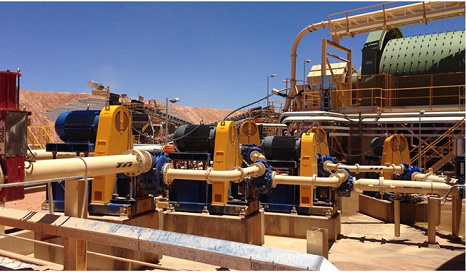
-
 Afrikaans
Afrikaans -
 Albanian
Albanian -
 Amharic
Amharic -
 Arabic
Arabic -
 Armenian
Armenian -
 Azerbaijani
Azerbaijani -
 Basque
Basque -
 Belarusian
Belarusian -
 Bengali
Bengali -
 Bosnian
Bosnian -
 Bulgarian
Bulgarian -
 Catalan
Catalan -
 Cebuano
Cebuano -
 Corsican
Corsican -
 Croatian
Croatian -
 Czech
Czech -
 Danish
Danish -
 Dutch
Dutch -
 English
English -
 Esperanto
Esperanto -
 Estonian
Estonian -
 Finnish
Finnish -
 French
French -
 Frisian
Frisian -
 Galician
Galician -
 Georgian
Georgian -
 German
German -
 Greek
Greek -
 Gujarati
Gujarati -
 Haitian Creole
Haitian Creole -
 hausa
hausa -
 hawaiian
hawaiian -
 Hebrew
Hebrew -
 Hindi
Hindi -
 Miao
Miao -
 Hungarian
Hungarian -
 Icelandic
Icelandic -
 igbo
igbo -
 Indonesian
Indonesian -
 irish
irish -
 Italian
Italian -
 Japanese
Japanese -
 Javanese
Javanese -
 Kannada
Kannada -
 kazakh
kazakh -
 Khmer
Khmer -
 Rwandese
Rwandese -
 Korean
Korean -
 Kurdish
Kurdish -
 Kyrgyz
Kyrgyz -
 Lao
Lao -
 Latin
Latin -
 Latvian
Latvian -
 Lithuanian
Lithuanian -
 Luxembourgish
Luxembourgish -
 Macedonian
Macedonian -
 Malgashi
Malgashi -
 Malay
Malay -
 Malayalam
Malayalam -
 Maltese
Maltese -
 Maori
Maori -
 Marathi
Marathi -
 Mongolian
Mongolian -
 Myanmar
Myanmar -
 Nepali
Nepali -
 Norwegian
Norwegian -
 Norwegian
Norwegian -
 Occitan
Occitan -
 Pashto
Pashto -
 Persian
Persian -
 Polish
Polish -
 Portuguese
Portuguese -
 Punjabi
Punjabi -
 Romanian
Romanian -
 Russian
Russian -
 Samoan
Samoan -
 Scottish Gaelic
Scottish Gaelic -
 Serbian
Serbian -
 Sesotho
Sesotho -
 Shona
Shona -
 Sindhi
Sindhi -
 Sinhala
Sinhala -
 Slovak
Slovak -
 Slovenian
Slovenian -
 Somali
Somali -
 Spanish
Spanish -
 Sundanese
Sundanese -
 Swahili
Swahili -
 Swedish
Swedish -
 Tagalog
Tagalog -
 Tajik
Tajik -
 Tamil
Tamil -
 Tatar
Tatar -
 Telugu
Telugu -
 Thai
Thai -
 Turkish
Turkish -
 Turkmen
Turkmen -
 Ukrainian
Ukrainian -
 Urdu
Urdu -
 Uighur
Uighur -
 Uzbek
Uzbek -
 Vietnamese
Vietnamese -
 Welsh
Welsh -
 Bantu
Bantu -
 Yiddish
Yiddish -
 Yoruba
Yoruba -
 Zulu
Zulu


Ноя . 25, 2024 06:38 Back to list
Hydraulic Chain Block for Heavy Lifting and Industrial Applications
The Hydraulic Chain Block A Critical Tool in Material Handling
In the world of industrial machinery and material handling, the hydraulic chain block stands out as a vital tool. Known for its efficiency and reliability, this lifting device has become increasingly popular across various sectors, including construction, manufacturing, and warehousing.
Understanding the Hydraulic Chain Block
A hydraulic chain block, often referred to as a hydraulic hoist, operates on the principle of hydraulic compression. It uses a combination of hydraulic power and a chain system to lift heavy loads with ease. The device consists of several key components the hydraulic cylinder, the lifting chain, the hook, and the lever mechanism.
The hydraulic cylinder is the heart of the operation, using fluid pressure to create the necessary lifting force. When the operator pulls the lever, hydraulic fluid is forced into the cylinder, raising the load attached to the chain. This allows for a mechanical advantage, enabling a single operator to lift objects that would otherwise require multiple workers or heavier machinery.
Advantages of Hydraulic Chain Blocks
One of the primary advantages of hydraulic chain blocks is their ability to lift heavy loads efficiently. They can lift thousands of pounds, making them essential in industries that require the movement of heavy machinery, materials, or equipment. Additionally, these devices are designed with safety features, such as overload protection, which prevents the lifting of weights beyond their specified limits.
hydraulic chain block

Another significant benefit is their versatility. Hydraulic chain blocks can be used in various environments, from construction sites to factories. Their design allows them to be portable, enabling workers to transport them easily and set them up wherever needed. This adaptability is crucial in dynamic work environments where tasks and locations frequently change.
Ease of Use and Maintenance
The operation of a hydraulic chain block is straightforward, making it accessible to workers with minimal training. The design typically includes an ergonomic lever that enables smooth lifting and lowering actions, reducing the risk of fatigue during prolonged use. Moreover, many models come with a manual or electric pump option, offering further convenience depending on the specific requirements of the task.
Maintenance is also relatively simple. Regular checks on the hydraulic fluid level, inspection of the chain for wear and tear, and ensuring the integrity of the hooks can keep the chain block functioning optimally. Most manufacturers provide detailed guides on proper maintenance practices, ensuring users can extend the lifespan of their equipment.
Conclusion
In conclusion, the hydraulic chain block is an indispensable tool in the material handling industry. Its combination of efficiency, power, safety features, and ease of use makes it a preferred choice for many business operations. As industries continue to evolve and the need for more effective lifting solutions grows, hydraulic chain blocks will undoubtedly remain at the forefront of lifting technologies. Investing in this equipment not only enhances productivity but also contributes to a safer working environment, emphasizing the importance of reliable tools in modern industry. Whether for lifting heavy machinery on a construction site or organizing materials in a warehouse, the hydraulic chain block proves to be an essential asset for any heavy lifting task.
Latest news
duct-rodders-and-conduit-rod-tools
NewsAug.22,2025
ratchet-pullers-and-wire-tightening-tools
NewsAug.22,2025
chain-ratchet-pullers-and-hoist-solutions
NewsAug.22,2025
telescopic-hot-stick-for-electrical-and-high-voltage-use
NewsAug.22,2025
cable-clamp-and-insulated-cable-clamp-systems
NewsAug.22,2025
duct-rodder-conduit-rodder-and-cable-solutions
NewsAug.22,2025








